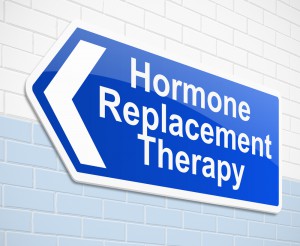
For many years women were advised by their physicians to take hormone pills to avoid the consequences of menopause. Estrogen hormones were prescribed in the belief that they would reduce the risk of osteoporosis and heart disease, and would alleviate hot flashes and other unpleasant symptoms of menopause. New medical studies have radically altered the use of hormone replacement therapy.
A review of female hormones will help clarify the medical issues with hormone replacement therapy. Young women have their first menstrual cycle and begin ovulating at approximately 10-15 years of age, at which time estrogen hormones rise dramatically. Women produce high levels of estrogen hormones until menopause (ages 40 to 55), at which time estrogen declines dramatically. This reduction in estrogen is a radical metabolic change that puts an end to ovulation and menstruation, and triggers the many symptoms associated with the “change in life”.
As estrogen declines and women go into menopause they can develop hot flashes, irregular menstrual periods, mood swings, and other symptoms. Long term problems such as bone thinning (osteoporosis), heart disease, and skin changes can also develop. In the 1960s doctors began to prescribe estrogen hormones to prevent the short-term and long-term complications of menopause. The estrogen pills did relieve the hot flashes and mood swings, and initial studies suggested a reduction in heart disease and osteoporosis, with minimal increased risk for breast cancer. Thus millions of women were put on hormone replacement therapy for years, sometimes decades.
We now know hormone replacement therapy increases the risk of heart disease and breast cancer, although it can prevent osteoporosis. This risks of hormone replacement therapy were discovered during a medical study called the Women’s Health Initiative, in which thousands of women were given either hormones or placebo, and followed for many years. The women on hormone therapy developed more heart disease and breast cancer than women on placebo, and consequently most women on hormone replacement therapy have been taken off.
Women may still take estrogen hormones at menopause, but they are advised not to take it for more than two years, because of the risk of heart disease and breast cancer. In addition, women do not need to take hormone replacement for osteoporosis anymore, because we now have newer, safer drugs for this.

